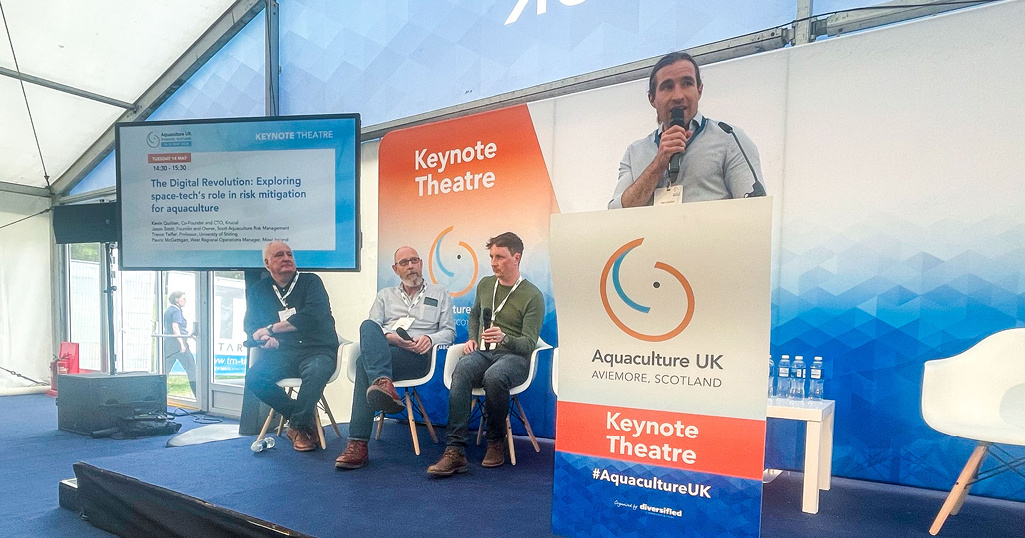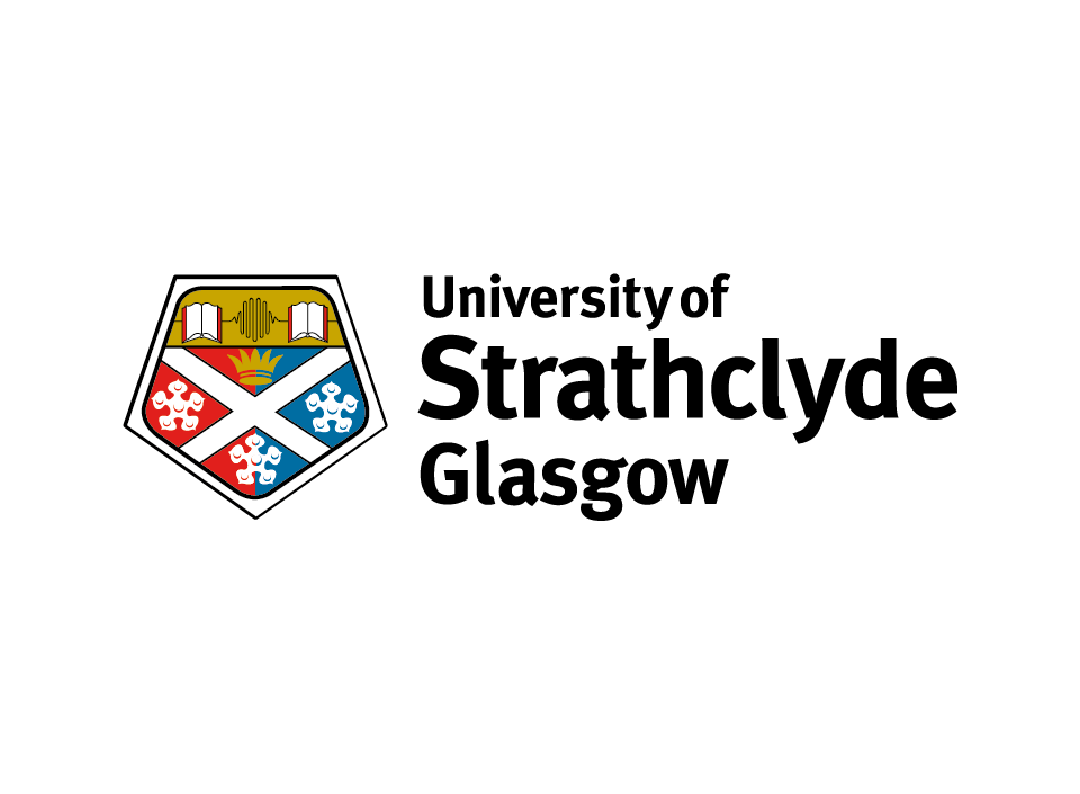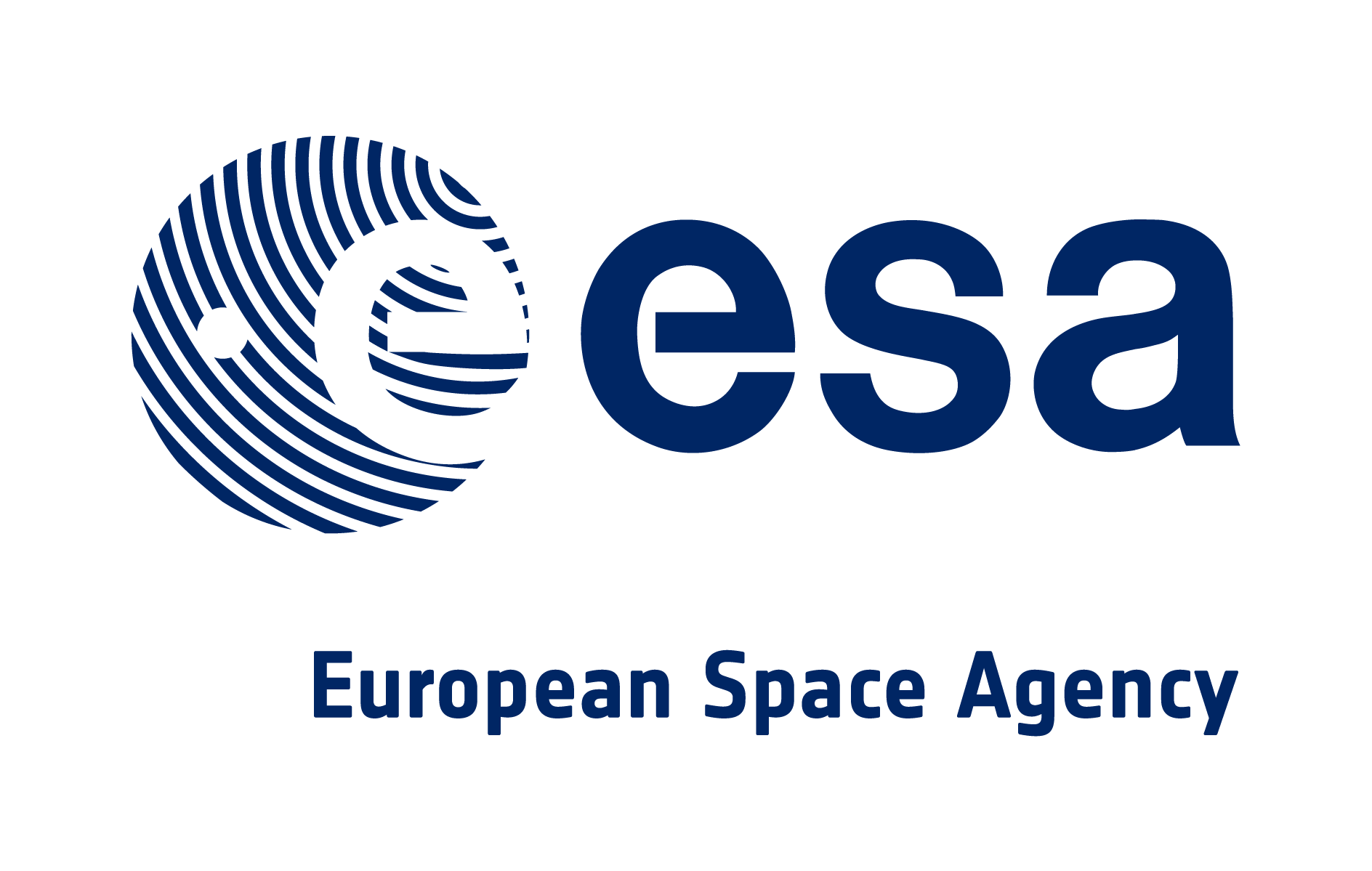Exploring space-tech’s role in risk mitigation for aquaculture

Krucial held a panel discussion at Aquaculture UK, the UK’s largest trade event for the aquaculture community, to discuss how the digital revolution and space-tech are shaping risk mitigation approaches in the industry.
Aquaculture is often perceived as a high-risk industry due to various factors such as extreme weather conditions and unpredictable biological issues, like rising water temperatures and plankton blooms. These challenges significantly impact day-to-day operations, posing substantial risks to production and profitability. As the industry increasingly looks towards digitisation, there's a promising future where data can play a critical role in mitigating these uncertainties.
The panel session, hosted by Krucial CTO and Co-Founder Kevin Quillien, comprised experts from across the industry:
Trevor Telfer, Professor, Institute of Aquaculture
Jason Scott, Owner and Founder, Scott Aquaculture Risk Management
Pauric McGettigan, Regional Manager West, Mowi Ireland
Understanding the Pain Points
The discussion covered the pain points across the industry, from day-to-day farm management and devising risk mitigation strategies to data collection:
- Extreme Weather and Biological Threats: Pauric McGettigan, who has first-hand experience from managing multiple farm sites in Ireland, highlighted the main issues: “Sea temperature and plankton blooms are the main issues. Technology plays a key role in making decisions, especially during summer months when biological threats (such as algae blooms) are highest.”
- Human Limitations in Risk Assessment: Jason Scott, an expert in risk management, emphasized the importance of data in removing human limitations from risk management: “Human brains are not naturally adept at assessing risk. However, data can transform perceived risks into mathematical predictability for use in day-to-day operations.”
- Data Quality and Consistency: Trevor Telfer stressed that high-quality data is essential for effective decision-making: “Data drives everything we do. It’s hard to get good quality data, but meaningful data that is sense-checked is good quality data.” Collecting and validating meaningful data from sensors remains a challenge in aquaculture given the environments in which they typically operate.
The Role of Timely Data in Risk Mitigation
It is unequivocal that timely data plays a pivotal role in risk mitigation. Space-tech-enabled technologies, such as Connected Seafarm, have revolutionized data accessibility, allowing site managers to monitor key parameters such as salinity and chlorophyll levels remotely. Pauric noted, “Introducing digital solutions powered by space-tech has been a game-changer for Mowi Ireland as many sites don’t have internet. Staff can get data on their phones from anywhere, promoting safety and informed decision-making without needing to visit the site in bad conditions. Essentially, sites can be managed without staff even going there.”
Digitisation supports remote monitoring of farm sites, and hybrid connectivity makes it easier to manage sites without relying on local infrastructure, which can be unreliable. Jason spoke of a feasibility study undertaken by Scott Aquaculture Risk Management, Krucial, and partners on a data-driven parametric insurance model: “Parametric insurance is new and simple – predetermined pay outs for predetermined events. Accurate data and independent recording methods are crucial for this model.”
A Look to the Future
The panel discussed the advancements that could impact the industry the most in the future. Advancements in sensor technology could provide more comprehensive data to aid decision-making across the industry. Pauric explained, “Sonar biomass in the pen would be a big help. Sensors that can detect full water columns at different depths would be a significant advancement.”
Moving fish farms farther offshore is widely discussed across the industry, already in practice in Norway. However, this shift comes with its own set of challenges, necessitating robust technologies to support these operations. Pauric noted, “The challenges we face get harder every year but the product increases in demand. Moving offshore with the support of technologies could be a solution as the closer to shore we are, the more biological issues we face. Moving further offshore could help mitigate these risks.”
Digital technologies also need to adapt to the ever-changing environment. Trevor advised, “The environment is changing. Digital technologies and monitoring systems give us short-term data that allows us to keep track of the environment and adapt on a day-to-day basis, but to move to long-term data modelling, industry tech needs to evolve. We need more ‘better’ data that needs to be standardized, maybe from a governance level, and shared across the industry for a holistic approach to data modelling.”
Jason echoed the need for a standardised approach to data modelling: “For both scientific and insurance purposes, data needs to be consistent and comparable. An industry body should work on standardising this approach.”
In Conclusion
The integration of space technology and digital advancements holds huge potential for transforming the aquaculture industry. By leveraging timely, high-quality data, operations can significantly mitigate risks, enhance decision-making, and improve operational efficiency. Although technology supports day-to-day risk management, work still needs to be done for long-term data modelling. Traditional data collection methods still have a place, working cohesively with sensor data to provide a ‘full-picture’ overview.
As the industry continues to evolve, collaborative efforts towards standardisation and technological innovation will be crucial in shaping a sustainable and resilient future for aquaculture.
To learn more about how digital solutions enabled by space-tech can mitigate risk in aquaculture, please fill in the form above.
Share this article
If you would like more information on Connected Seafarm and risk mitigation in aquaculture please submit the form below.
Recent Posts
Archives
- May 2023 (8)
- June 2023 (8)
- July 2023 (6)
- August 2023 (6)
- March 2023 (5)
- September 2023 (5)
- September 2024 (5)
- October 2024 (5)
- November 2024 (5)
- October 2022 (4)
- November 2022 (4)
- February 2024 (4)
- May 2022 (3)
- July 2022 (3)
- August 2022 (3)
- September 2022 (3)
- February 2023 (3)
- October 2023 (3)
- November 2023 (3)
- March 2024 (3)
- April 2024 (3)
- May 2024 (3)
- August 2024 (3)
- January 2025 (3)
- February 2025 (3)
- May 2021 (2)
- July 2021 (2)
- October 2021 (2)
- February 2022 (2)
- March 2022 (2)
- June 2022 (2)
- December 2023 (2)
- December 2024 (2)
- June 2019 (1)
- March 2020 (1)
- July 2020 (1)
- September 2020 (1)
- October 2020 (1)
- March 2021 (1)
- June 2021 (1)
- September 2021 (1)
- December 2022 (1)
- January 2023 (1)
- April 2023 (1)
- January 2024 (1)
- July 2024 (1)
Proud to be supported by








